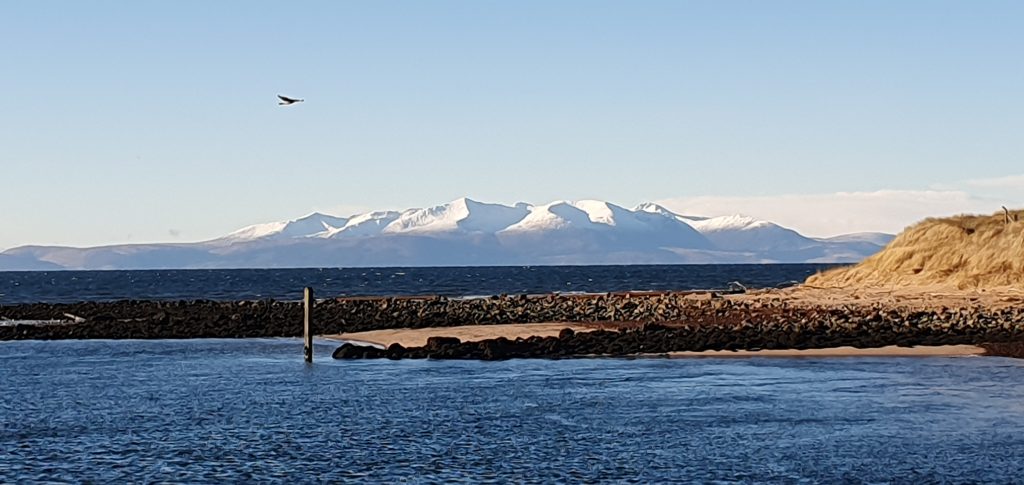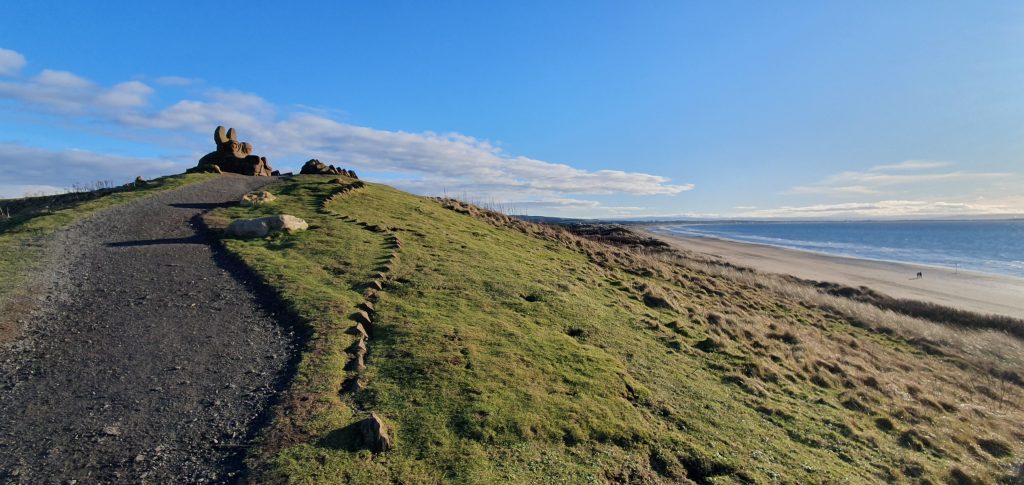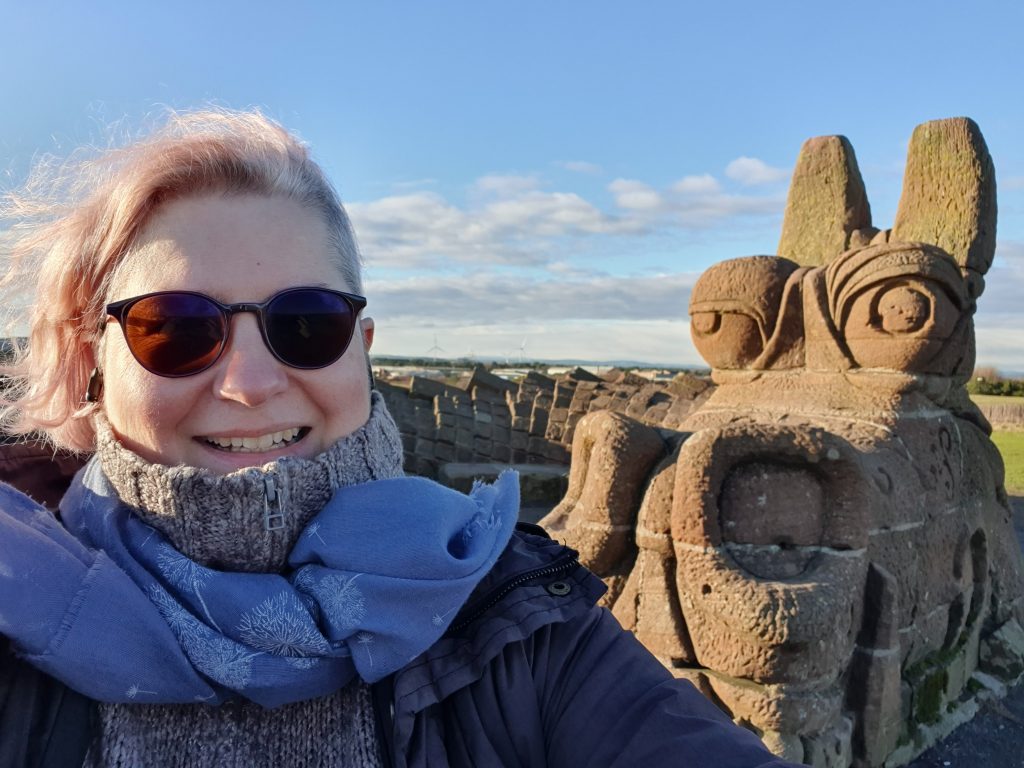
I’ve had to deal with a lot of unexpected things in the past few months. I had time to reflect about what enables me to make changes and how this has evolved over the years.
My last contract terminated earlier than planned. Like many people, I should have resumed work this week, but instead, I had the opportunity to go for long walks as the weather in Scotland has been cold but quite sunny.
The end of 2024 has been a lot for me. Among other things, I was diagnosed with diabetes type 2. After a few days feeling sorry for myself, I’ve learned about it, changed my diet and more, and reflected how much harder this could be for others.
There is a lot of misleading or incorrect information online, but I know how to search for information, so I could start understanding what to eat or not. Navigating the different appointments you need to make and what to expect was not super clear as you need to have an understanding of how NHS works and more.
In most cases, you’re told to lose weight. If you manage to do that, you might need new clothes, more than once as it will be going on for a while. By avoiding sugar, fried food, or anything containing flour, pasta, potatoes, white bread, and rice, you cut yourself from pretty much any cheap options for food. It costs money, it’s easier if you can/know how to cook, and it makes socialising a lot more difficult.
You’re encouraged to exercise. For me it’s not really an option. Long walks, yes that’s possible especially now that I have more time, but anything more intense won’t do because I have ME/CFS – I’ve written about this in this blog post.
Depending on your context, your access to resources, and the support you get or not from your friends, family, work, it will be more or less easy to deal with your condition.
I’m not sure if access to a wide range of food options is the best illustration of privilege, but this is something I do not have easy access to anymore. Many people are in this situation for medical reasons (allergy, intolerance and more), financial or religious reasons for example. Until now, I wasn’t thinking about this.
With privilege, it’s often when it’s taken from you that you suddenly realise that until now, you had it easy.
Privilege: power you get from a social relation where you benefit due to the social group you belong to, at the expense of another social group. It is an unearned advantage given to you because of your identity. It is possible to both have privilege and experience oppression at the same time, since identity is intersectional. When you have privilege, it is often invisible to you. – Maya Goodwill.

My privileges have evolved over time
When we moved to Scotland 20 years ago, my status as a European national was not so different from British people. Easily moving and working in a country part of the EU was one of the options I had. With Brexit, things became a bit harder, and there was nothing I could do about it.
Getting ME/CFS initially prevented me from working. It got better over time but this forced me to reassess what I could do. Brain fog and physical limitations gave me a better understanding of how other people might be struggling to do things which until then were so easy for me. After a while (it took years), I was able to study and go back to full time employment. I could make it sounds like “with my hard work and amazing will power, I’ve turned my life around” – you know that kind of LinkedIn posts 😉 But the truth is, I was at lost with what to do, so I tried studying online, and really enjoyed it which made it easy. I could afford to do it because I was entitled to funding to study (as a EU national in Scotland) and my family could cope without me earning while I was studying.
As permanent, I often felt I was not listened to, no matter how hard I tried and how well I was presenting my arguments. Consultants were coming in and their recommendations were the ones my managers would go for, even when it was pretty clear (at least to me!) that it was not the right thing to do. When I became a ‘senior consultant’, suddenly, it became way easier to be listened to in meetings and being taken seriously by various stakeholders. Many people in the workplace do not realise that how you are perceived, treated and valued depend on your job title – at least it’s been my experience in the UK. And people sometimes forget about it as they move up.
Being perceived as ‘young’ will often play against you too. I think I need to enjoy the last few years where my age is still an asset and being seen as ‘experienced’ because soon, I’m going to be seen as ‘old’ and I expect I’m going to fall back in the group of people whose opinion is not valued that much. Especially as a woman.

Recognising my positionality
Positionality refers to the personal values, views, and location in time and space that influence how one engages with and understands the world. It is wrapped up in the dynamics of power and privilege. For example, your gender, race, class, and other aspects of your social identities influence and inform how you move through the world, what knowledge you produce and value, and the biases through which everything you say, think, and do, is filtered, intentionally or otherwise.
Quote from: Universal Design for Learning (UDL) for Inclusivity, Diversity, Equity, and Accessibility (IDEA)
At work, or when I deliver a talk or when writing blog posts like this one, I try to be aware of my positionality. It’s easy to give advice without taking others’ people context into account. I’ve seen this quote, not long ago: “You didn’t make good choices, you had good choices” – I think it’s from the book/series “Little fires everywhere”. An alternative version could be “you didn’t make bad choices, you only had bad choices”.
As a designer, I try to keep this in mind when I make design decisions. I try not to overlook how some people might be impacted because their situations would prevent them from accessing a service.
As a mentor, I try to remember how it was for me when I started working in design. Before giving some advice, I look back at what might have make it easier for me, how different the context might have been. It’s one of the reasons why I enjoy mentoring: it forces me to reflect and remember how I got where I am today.
Changes for 2025
There are a few changes I need to make this year. Like keeping with the new diet so my diabetes gets under control at some point, doing more walks regularly even when I start working again.
I’ll try to continue to slow down in terms of attending events and social media. I find myself looking at posts on LinkedIn or at work and thinking: “nah, do not engage” and it’s been good for me.
If you have read up to now, I hope it was enjoyable. I wish you all the best for 2025!